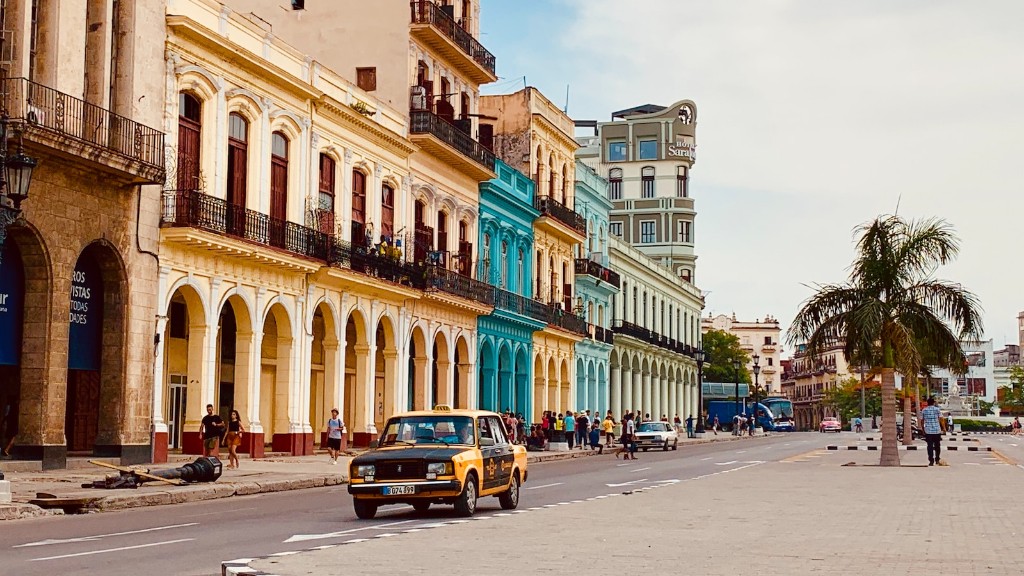When is Trump Stopping Travel to Cuba?
The question of when President Trump will enact travel restrictions to Cuba has been a topic of keen interest and speculation. The Trump administration has taken a firm stance on U.S.-Cuba relations, signaling a potential change in policies established by the previous administration. In this article, we will explore the current situation and examine the factors that may contribute to Trump’s decision to restrict travel to Cuba.
Rising tensions in U.S.-Cuba relations
Since assuming office, President Trump expressed concerns over the Obama-era policies towards Cuba. He criticized the easing of restrictions, arguing that it did not lead to substantial political and economic reforms on the island. This critique has laid the groundwork for a potential reevaluation of travel policies between the two countries.
Unresolved issues
One of the key factors driving the reevaluation of travel to Cuba is the unresolved issue of property claims by U.S. citizens and companies. Many properties were confiscated by the Cuban government during the revolution in the 1950s, and their rightful owners have sought compensation. The Trump administration has prioritized resolving these claims before fully normalizing relations with Cuba.
The impact on the Cuban economy
While travel restrictions would have significant implications for U.S. citizens, it is essential to consider their impact on the Cuban economy. In recent years, tourism has become a vital sector for Cuba, generating much-needed revenue for the country. Restricting travel from the U.S. would undoubtedly have adverse effects on Cuba’s tourism industry.
Tourism as a double-edged sword
Proponents of travel restrictions argue that tourism dollars mostly benefit the Cuban government and do not reach the Cuban people directly. They claim that restricting travel would pressure the Cuban government to implement meaningful reforms and ensure the economic benefits reach the citizens. However, others argue that engagement and increased travel between the U.S. and Cuba facilitate cultural exchange and provide opportunities for Cuban entrepreneurs.
Legal considerations and political pressure
The process of implementing travel restrictions involves legal considerations and potential political pressure. The Trump administration needs to evaluate the legal framework established by previous policies and consider the reaction from various interest groups before making any decisions.
Legal frameworks
The current policies allowing travel to Cuba are based on executive orders and regulations implemented during the Obama administration. To restrict travel, President Trump would need to modify these regulations, which could involve legal challenges and potential delays.
Pressure from interest groups
Various interest groups, such as Cuban Americans, agricultural groups, and business organizations, hold diverging views on travel restrictions to Cuba. Cuban Americans, in particular, have historically influenced U.S. policies towards the island due to their significant voting power in swing states like Florida.
Uncertainty surrounding the timeline
Despite the expressed concerns and promises of a change in policy, it is unclear when exactly President Trump will enact travel restrictions to Cuba. His administration has been preoccupied with various domestic and foreign policy issues, which may have delayed their focus on Cuba. It is reasonable to assume that extensive consideration is being given to the potential consequences before any decisive action is taken.
Continued dialogue and negotiations
In the meantime, the U.S. and Cuba continue to engage in dialogue and negotiations to address the issues that divide them. Both countries have expressed a willingness to find common ground and improve relations. The outcome of these ongoing discussions may impact the timing and nature of any potential travel restrictions imposed by the Trump administration.
The future of U.S.-Cuba relations
As we await a definitive answer on when President Trump will enact travel restrictions to Cuba, it is paramount to recognize that U.S.-Cuba relations are complex and multifaceted. The decision on travel restrictions will have far-reaching consequences not only for the two countries but also for individuals and businesses on both sides of the divide.
Striving for balance
Ultimately, finding the right balance between economic interests, human rights concerns, and national security priorities will shape the future of U.S.-Cuba relations. The interconnectedness of these issues necessitates a comprehensive approach that takes into account the long-term consequences of any policy changes.



